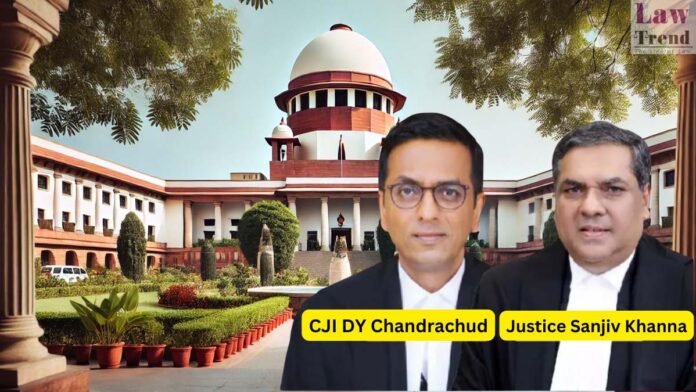In a significant development within the judiciary, Chief Justice of India DY Chandrachud has formally recommended Justice Sanjiv Khanna to succeed him as the next Chief Justice. The recommendation, which adheres to the tradition of the outgoing Chief Justice proposing a successor, was communicated through a formal letter to the Union law ministry. Justice Khanna, who currently holds the position of the second-most senior judge at the Supreme Court.
Justice Chandrachud, who assumed his role on November 9, 2022, is slated to conclude his tenure on November 11, adhering to the constitutional mandate that requires Supreme Court judges to retire at the age of 65. Justice Khanna’s legal career began in 1983 after he registered as an advocate with the Bar Council of Delhi. He initially practiced at the district courts in Tis Hazari before moving to the Delhi High Court and various tribunals.
Over the years, Justice Khanna has held numerous prominent positions including the Senior Standing Counsel for the Income Tax Department and Standing Counsel for the National Capital Territory of Delhi since 2004. He currently serves as the Executive Chairman of the National Legal Services Authority and is a member of the Governing Council of the National Judicial Academy in Bhopal.
Justice Khanna was appointed as an Additional Judge of the Delhi High Court in 2005, attaining permanent status in 2006. He was elevated to the Supreme Court in January 2019. Throughout his career, Justice Khanna has been involved in several high-profile legal cases, notably contributing to the discussions on fundamental rights under the Indian Constitution. His judicial portfolio includes his participation in the bench that upheld the Central Vista Project, the bench endorsing the abrogation of Article 370, and the one that nullified the electoral bonds scheme.
In one of his significant rulings, Justice Khanna upheld the reliability of electronic voting machines (EVMs) by dismissing requests for 100% cross-verification with Voter Verifiable Paper Audit Trail (VVPAT). He emphasized the trustworthiness of India’s electoral infrastructure, reinforcing the integrity of its electoral processes.




